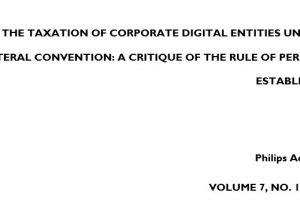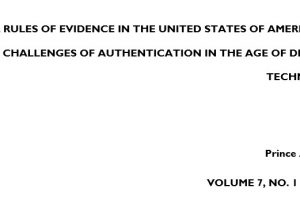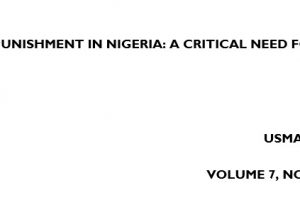UNEARTHING THE PRINCIPLES OF DELIBERATIVE DEMOCRACY WITHIN THE FRAMEWORK OF THE EXTANT 1999 CONSTITUTION OF THE FEDERAL REPUBLIC OF NIGERIA
ABSTRACT
Recently, political theorists have intensified their call for the entrenchment of deliberative democracy as the style of governance. Its proponents have argued that deliberative democracy’s emphasis on citizen-led process of decision making, rather than its outcome, makes it the ideal form of democracy. While no country has successfully entrenched this form of democracy, Canada, the United States and Australia have applied its principles to address some issues of governance successfully. Its appeal has drawn the attention of communist nations like China and supranational organizations like the European Union. Relying on the public reasoning principle, power checking principle, and entrenchment principle, the author inquired into the parameters within which deliberative democracy as an ideology could thrive within the framework of the existing 1999 Constitution. After that, the author reflected on those principles, conclusively identified hindrances to its application, and recommended some practical solutions.
To read the full article, click here.
UNILAG Law Review, (2020) Volume 4 Edition 1
About the Author
The author is a graduate of the Faculty of Law, University of Lagos. He was an Associate at different periods in some of the top tier firms in Nigeria. He is currently a Graduate Student at Peter A. Allard School of Law, University of British Columbia researching on deliberative democracy and power. He is reachable at oluwaseunoajaja@gmail.com.




